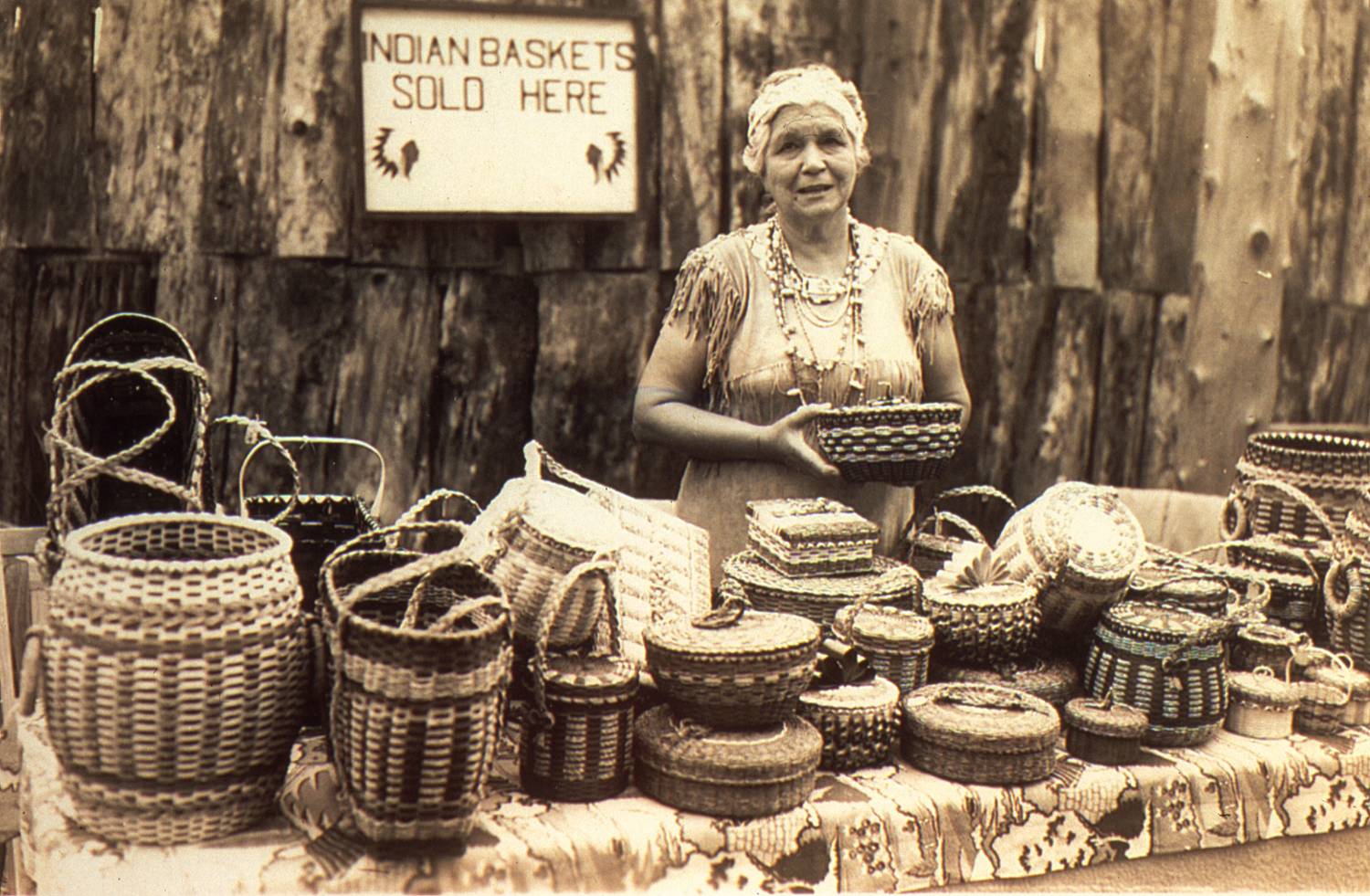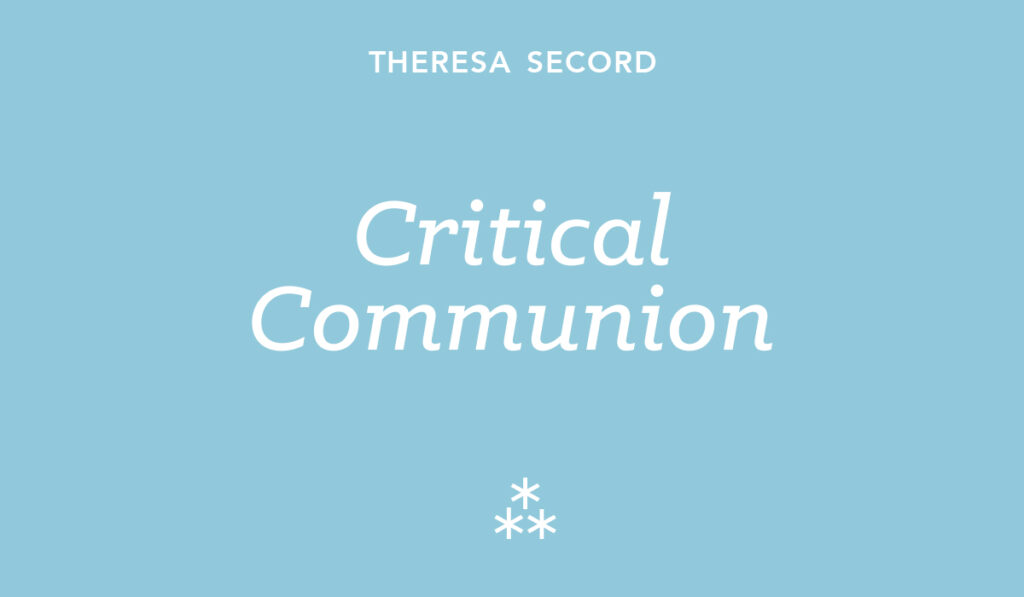by Theresa Secord
As Indigenous artists, our ancestors possessed remarkable resilience to overcome pandemics, extermination policies, and staggering land losses due to broken treaties. Smallpox was brought to New England in the early 17th century by Europeans. Here in Maine, we cite the 1755 Proclamation by King George of England to Spencer Phipps, Lt. Governor of Massachusetts, specifying a bounty on the head of every male, female, and child in my tribe, the Penobscot. We are survivors. As Oren Lyons, faith keeper of the Onandaga, says, “this [pandemic time] is a new time of survival for us a native people.”
The arts are an integral cultural expression and transmission of intergenerational knowledge in our tribal communities. Passed down for generations, the tangible expression of wisdom and intellectual property is now inherited by us, the “seventh generations.”
For the past 200 years, Native artist entrepreneurs have sold baskets at the coastal and inland resorts in Maine’s tourism economy. My family has a deep connection to this tradition of basket making and marketing. As a culture bearer, I weave baskets using the same wooden forms and tools that have been handed down to me from the late 1800s.

To adapt to changing markets in recent times, we’ve been flying on planes for the past fifteen years to the large juried Indian art markets in the West. Some of the younger generations of basketmakers in the Wabanaki Tribes in Maine have won the top prizes in these shows, realizing upwards of $25,000 for individual baskets. In advance of, and during the Maine Bicentennial, our work as artists includes decolonizing museum exhibitions of Wabanaki art in places like the Colby Art Museum, Maine Historical Society, and Portland Museum of Art.
Recent threats to climate change to the ash and sweet grass basketry tradition, the arrival of the Emerald Ash Borer beetle are sustained urgencies. We have been watching this happen for fifteen years, as the beetle moved east and finally entered Maine in 2018. Basketmakers are innovating using alternative materials, as the ash becomes more scarce and the trees are dying. Yet, still we pass on knowledge and innovate. Maine’s oldest art form — ash and sweet grass basketry — not only endures, it thrives.
Ongoing work with foresters to document culture bearers’ information will ensure that future generations know how to harvest and process the ash tree for baskets. It takes sixty years to grow a suitable basket tree, leaving behind critical habitat information for future generations.
Our values-based art and community art practices are successful and ongoing models for a thriving art culture — in this time of survival and into the future.
Theresa also shared a short, related text in response to the Maine Bicentennial. It can be read below and as it originally appeared on Facebook here.
Dear ____________________________
Thank you for asking, but I can’t be the Indian reading a passage of the Declaration of Independence for the Maine 2020 Bicentennial celebration on July 4. I’m not a historian, and I often say yes to being the sole Native American “in the room”, here in Maine, the least diverse state in the nation. And, King George III of England was successor to King George II who by order to Lt. Gov Spencer Phipps of the Province of Massachusetts (ie. included the Province of Maine) in 1755, did so clearly call for a $ bounty on every male, female and male child of my tribe, the Penobscot, in one of the first official documented genocide attempts in this nation…(document attached).
So, yes I surely agree, the King’s authority needed to be overthrown here in the 13 colonies, as called upon in the Declaration.
Yet until the ideals of equality and sovereignty, etc… as expressed in the Declaration…
(Written by slave owner Thomas Jefferson, whose policies toward Native Americans still affect the human landscape today. “Thomas Jefferson is perhaps best known for his role as principal author of the Declaration of Independence. But the third president of the United States was also the first to propose broad policies that called for the removal of Indians from their homelands.” Alysa Landry for Indian Country Today, 2016.)
…are fully embraced and lived, I don’t have the desire or the inclination to read them publicly for the July 4, 2020 celebration.
I appreciate being asked, as I presume for most it would be an honor, yet personally, I’m conflicted. best wishes and thank you, Theresa Secord
Theresa Secord is a traditional Penobscot basket maker and the founding director of the Maine Indian Basketmakers Alliance (MIBA). During her 20 years of leadership, MIBA was credited with saving the endangered art of ash and sweet grass basketry by: lowering the average age of basket makers from 63 to 40; and increasing numbers of weavers from 55 to more than 200; in the Maliseet, Micmac, Passamaquoddy and Penobscot tribes. Over the course of 30 years, Theresa taught more than a dozen apprentices the endangered art of ash and sweet grass basketry. Now, some of her apprentice’s apprentices have apprentices!
Theresa has been honored several times for her advocacy. Among the most notable, the National Endowment for the Arts bestowed her with the prestigious life time achievement award, the National Heritage Fellowship, in 2016. In 2003, she was awarded the Prize for Creativity in Rural Life by the Women’s World Summit Foundation, granted at the UN in Geneva Switzerland, for helping basket makers rise out of poverty.
She has won a number of first place ribbons for her own basketry at the Santa Fe Indian Market, the Eiteljorg Indian Art Market, and the Heard Museum Guild Indian Fair and Market. Her baskets are in many private and museum collections.
In addition to weaving baskets, Theresa continues to help other artists achieve their own goals of art and economic self-sufficiency, through work for national Native arts organizations; First Peoples Fund of Rapid City and the Native Arts and Cultures Foundation of Portland, OR.
In Maine, Theresa sits on the Governing Board of the Colby College Museum of Art, has consulted to the Portland Museum of Art on the Portland Biennial, and has co-curated a number of local Wabanaki basketry exhibitions.


